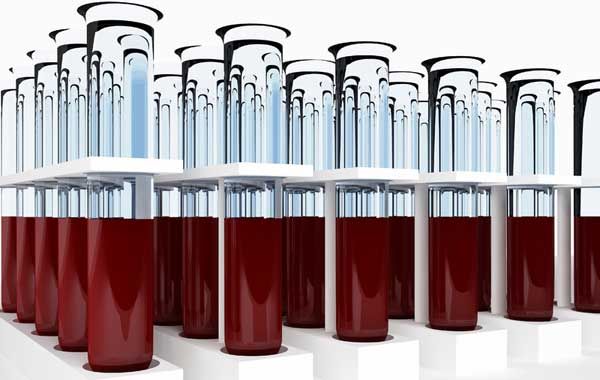It's in the Blood: New Hope for Detecting Schizophrenia

In the 2001 movie, "A Beautiful Mind," mathematician and Nobel Prizewinner John Nash struggled with the debilitating mental disorder schizophrenia for years before being properly diagnosed and treated. For many individuals and families coping with this disease, early intervention is critical.
A new blood-based test may help with that effort. The test, called VeriPsych, looks for biomarkers of schizophrenia in a person's blood, and is the first such diagnostic test meant to assist psychiatrists in confirming the diagnosis of recent-onset schizophrenia, researchers say.
How the test works
VeriPsych measures biomarkers, which are proteins or snippets of genetic material found in the bloodstream, that may be an indication of a condition or disease. Scientists have found 51 of these molecules associated with schizophrenia.
"There are many people that believe that schizophrenia is a systemic disease," said study researcher Dr. Michael Spain, chief medical officer at Rules-Based Medicine, the company that makes the test and funded the study. "It is just that its greatest manifestations are in the brain."
To make a diagnosis, the biomarker profile of a suspected schizophrenia patient is compared with that of a patient with the disease.
In a recent study led by Spain, biomarkers in blood samples from 577 patients with schizophrenia in various stages of illness including some who had recently experienced an initial psychotic episode, and some were chronically ill were measured against those of 229 people without the disorder. Researchers found the test to be accurate in diagnosing 83 percent of patients.
Sign up for the Live Science daily newsletter now
Get the world’s most fascinating discoveries delivered straight to your inbox.
The 51 biomarkers were still identifiable after some patients underwent four to six weeks of medication, the researchers said.
The finding, detailed in May in the journal Biomarker Insights, was not widely reported. The company recently issued a news release on the research.
The test was particularly effective in difficult cases, with patients who had experienced multiple psychotic episodes, Spain said.
"There is a certain amount of denial when a child is diagnosed with schizophrenia . You wish that your child did not have that," Spain told MyHealthNewsDaily. "It is a good test to convince parents or even the patient to stay on medication, as opposed to just subjective opinion."
However, VeriPsych researchers warn this blood-based test is not meant to provide a definitive diagnosis for schizophrenia . Currently, they are developing a test that would distinguish between schizophrenia and other mental illnesses, such as bipolar and major depressive disorders.
Can a blood test really detect a mental illness?
Some physicians are skeptical of the test. While recognizing the need and potential for relying on methods other than patient reports or observations, the science is not there yet, said Dr. Gregory Light, an associate professor of psychiatry at the University of California, San Diego.
"Blood-based tests, at the moment, are far away from being useful for an individual patient," Light said. "For example, [genetic tests] raise more questions than they answer, account for only a small number of cases, and the advances in technology are rapidly outpacing our ability to interpret the results."
The biomarkers that some research has suggested are associated with schizophrenia might be a consequence of the illness, or long-term use of antipsychotic medication, said Dr. Irving Gottesman, a professor emeritus of psychology at the University of Minnesota.
"It takes, often, a period of observation, both with and without medication of 6 months or more, to get a better 'feel' for what may be the proper diagnosis," Gottesman said.
Currently, patients with schizophrenia are diagnosed through interviews with a doctor. The diagnosis, like those of many mental diseases, is made based on the criteria set by the reference book Diagnostic and Statistical Manual of Mental Disorders (DSM).
To be diagnosed, a patient has to be suffering from two or more common symptoms for approximately one month or less. Symptoms include delusions, hallucinations, movement disorders, trouble focusing, poor working memory and lack of pleasure in daily activities. Diagnosis can be tricky because signs of schizophrenia can also mimic other conditions like depression , anxiety or bipolar disorders.
An estimated 2.4 million American adults, or 1.1 percent of people ages 18 or older, suffer from schizophrenia, according to the National Institute of Mental Health. Fewer than half receive appropriate antipsychotic medication or psychosocial interventions, according to a July 2004 report by the Agency for Healthcare Research and Quality.











